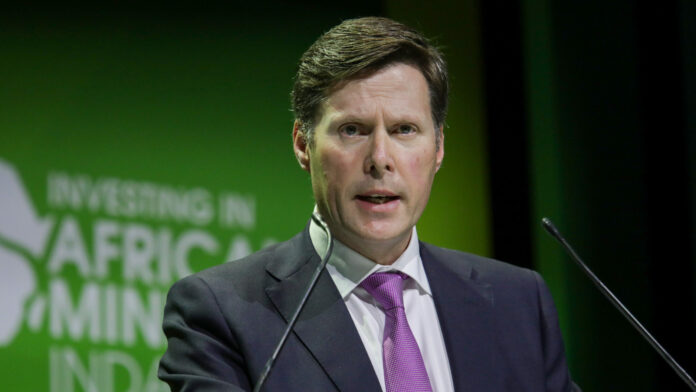
ANGLO American CEO, Duncan Wanblad said South Africa had not fully recognised the scale and cost of the problems at Transnet, the freight and logistics firm.
He also feared a crisis was developing at Transnet to rival that of power utility Eskom which is now at the centre of a sweeping restructure of the country’s energy sector.
Both Transnet and Eskom are owned by the government which has largely resisted private sector investment aimed at alleviating operational problems.
Last week, South African president Cyril Ramaphosa unveiled plans to restructure the country’s energy sector following five weeks of load-shedding.
Said Wanblad of Transnet’s position: “I honestly don’t think we are counting fully yet the real cost of this thing; that’s part of the problem.
“There’s a lot of work still to do to get to the point where there’s a real recognition of a solution. It is going to get to the same sort of crisis propotion that Eskom got to if it’s not addressed sooner rather than later”.
Miners of bulk minerals, especially coal, manganese and iron ore, have criticised Transnet Freight Rail (TFR), Transnet’s largest operating unit, for poor performance on its rail lines from mines to ports in Kwazulu-Natal and the Western and Eastern Cape provinces.
In the case of the coal line, which links mines in Mpumalanga and Limpopo provinces to Richards Bay Coal Terminal and Durban ports, the current run-rate is not likely to beat last year’s multi-year coal delivery low of about 58 million tons.
Theft and vandalism on the coal line in particular are compounding problems procuring spare parts that is afflicting TFR’s ageing fleet of locomotives.
Wanblad said Anglo was active in coming up with solutions. The possibility of a private sector concession agreement was among one of the suggested solutions aimed at improving deliveries on TFR lines, among other ideas.
“That’s certainly one of the options,” he said. “There are many forms of public private partnerships and we’re exploring all of those at the moment.
“We have proposed and continue to propose in combination with a lot of other people workable outcomes that I think could certainly work for us and Transnet, and we’ll keep doing that,” Wanblad said.
Sizakele Mzimela, CEO of TFR, said last week at the Coal & Energy Transition Day, a conference held in Johannesburg, that private sector participation on the main bulk minerals lines was unlikely.
“There may be opportunities here and there to bring in private participation but it is very unlikely it will be on the main (bulk minerals) line. I have to be honest about that,” Mzimela said.
Mzimela added there were no free train slots on the line that would be available for private sector companies to operate. Any additional train slots that could be added would be filled by under utilised assets TFR owned, she said.
In some good news, Mzimela said four additional train slots were added on the coal line following a 10 day shut in July, with a further additional slots due to be added in September. About 36 kilometres of line on the coal network were also replaced during the maintenance shut down, Mzimela said.











